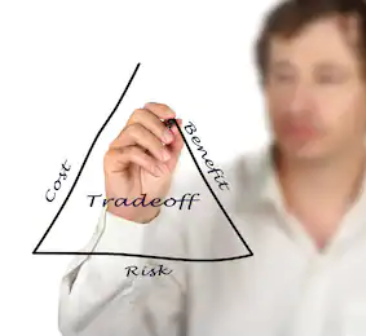Almost as soon as it got going, the Brexit Party was bigger than Brexit. When the offence archeology began on its EU candidates, and the party remained blithely unmoved, something changed in British politics. Hope emerged. Perhaps we can talk about policy again and not about who tweeted who in 2006.
And then something else almost too good to be true. Pushed on the party’s policy vacuum during an LBC interview, Farage said it would derive policy by “having votes amongst registered supporters”. He said “We are going to consult them and we will produce policy based on what our supporters think”. Pinch me.
Shortly after this statement, I saw someone with “Brexit Party” in their twitter handle put out a survey about British Steel. Did Brexit Party supporters think it should be saved? With my fingers moving faster than my brain I voted “yes” and noted that just about everyone else had done so too. Just like that huh?
But the experience got me thinking. Could the Brexit Party harness the connectivity and access to information provided by the internet – along with the intelligence and enthusiasm of its supporters – to create a coherent policy platform that its supporters back?
British Steel is great example to use to think this through. All I know about British Steel is that someone bought it off the Government a while back for £1. And now it needs bailing out again. Should the Government bail it out, buy it back, let it go bust – or what?
The trade-offs are clear: On the one side, how many jobs are at stake and, if they were to go, how easy would it be for the workers to find new work? On the other side, what is the size of the bail-out required? Is a state subsidy required forever? What is the size of the subsidy per job? Finally, what of the product itself? Is there something good about it for Britain, over and above the jobs its production creates?
Obviously it would be nice to know more. What is the history of British Steel? Is its steel the same or different to other people’s steel? Why is it currently uncompetitive? Are there opportunities for it to diversify? Is membership of the EU making the situation better or worse? How will things change when we come out?
Amongst us Brexit Party supporters, the free-marketers are more likely to start out saying: let it go. But the communitarians are going to say: these jobs matter and this community matters. And as we learn more about the community in which British Steel operates, the scale of subsidies per job, the possible new opportunities for British Steel (or lack of them) it could well be that a convergence of views occurs.
Anyway, back to my original point, for which this serves as an example. It would not be too difficult for someone to package together the relevant information on British Steel. It would not be too difficult to make it available online in a format requiring you to work through all the material if you want to participate. Then an online survey.
We are all virtue signallers now, and it would be easy for us to “vote through” spending on every difficult situation we face. At the same time as approving tax cuts for all, of course. An important part of the survey design would be requiring people to show, if they want to spend money, where it will come from.
When I was a local councillor in London I remember a detailed consultation coming out from Transport for London about cycle superhighways. Because this greatly impacted local people, I know that TfL got detailed feedback about really specific problems with a route they were proposing. They crowdsourced valuable information.
I don’t think its a pipedream for the Brexit Party’s supporters to be deeply involved in policy development. It’s entirely do-able. But it should be done with a degree of seriousness, expecting those who participate to learn about a lot of stuff and take the process seriously. Also to recognise that money does not grow on trees, that trade-offs will always be needed, and truly difficult choices will always confront us.
Obviously the party leadership will need to be in the driving seat – we all get that. But the party will be far more likely to win elections if it makes a serious effort to find out what its supporters really think and what they value, and to develop policy reflecting that.
From all the party supporters I have spoken to I believe we have the intelligence and the enthusiasm and the required seriousness, in abundance, to make this work.






Fantastic idea, not only democratising policy but modernising the process!
台湾的虚拟号码:通信技术的新时代
近年来,技术进步正在迅速改变人们的沟通方式。 其中一项创新是虚拟号码的出现,为用户提供了新的沟通机会。 台湾作为亚洲领先的技术中心之一,正积极迎接这一趋势。
什么是虚拟号码?
虚拟号码是未链接到特定物理设备或位置的电话号码。 它可以在互联网上工作,可以在各种设备上使用,如智能手机,计算机甚至特殊应用程序。 这为用户开辟了全新的视野。
虚拟房间在台湾的优势
1. 灵活性:用户可以根据需要轻松更改他们的号码,这对企业特别有用。
2. 节省:虚拟号码通常比传统号码便宜,特别是对于国际电话。 对于在国际市场运营的公司尤其如此。
3. 安全性和匿名性:虚拟号码有助于保持隐私。 用户可以隐藏他们的真实号码,这对自由职业者和企业家尤其重要。
4. 访问各种服务:大多数虚拟号码提供商提供额外的功能,如语音信箱,应答机和记录对话的能力。 http://www.8450.com.cn/20240129/30129720.html
对业务和通信的影响
虚拟数字正成为台湾企业的重要工具。 它们使您能够有效地管理客户电话,确保高质量的服务。 此外,公司可以通过使用虚拟号码进入新市场来轻松扩大客户群。
结论
虚拟数字正在成为台湾和世界各地现代通信的一个组成部分. 通信技术的新时代为个人和企业开辟了新的机会和改变了沟通方式。 台湾凭借其高水平的技术和创新,处于这一转型的最前沿。
台湾的虚拟号码:通信技术的新时代
近年来,技术进步正在迅速改变人们的沟通方式。 其中一项创新是虚拟号码的出现,为用户提供了新的沟通机会。 台湾作为亚洲领先的技术中心之一,正积极迎接这一趋势。
什么是虚拟号码?
虚拟号码是未链接到特定物理设备或位置的电话号码。 它可以在互联网上工作,可以在各种设备上使用,如智能手机,计算机甚至特殊应用程序。 这为用户开辟了全新的视野。
虚拟房间在台湾的优势
1. 灵活性:用户可以根据需要轻松更改他们的号码,这对企业特别有用。
2. 节省:虚拟号码通常比传统号码便宜,特别是对于国际电话。 对于在国际市场运营的公司尤其如此。
3. 安全性和匿名性:虚拟号码有助于保持隐私。 用户可以隐藏他们的真实号码,这对自由职业者和企业家尤其重要。
4. 访问各种服务:大多数虚拟号码提供商提供额外的功能,如语音信箱,应答机和记录对话的能力。 http://www.qweew.cn/20240129/53679017.html
对业务和通信的影响
虚拟数字正成为台湾企业的重要工具。 它们使您能够有效地管理客户电话,确保高质量的服务。 此外,公司可以通过使用虚拟号码进入新市场来轻松扩大客户群。
结论
虚拟数字正在成为台湾和世界各地现代通信的一个组成部分. 通信技术的新时代为个人和企业开辟了新的机会和改变了沟通方式。 台湾凭借其高水平的技术和创新,处于这一转型的最前沿。